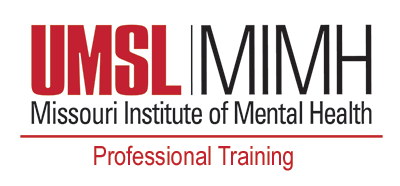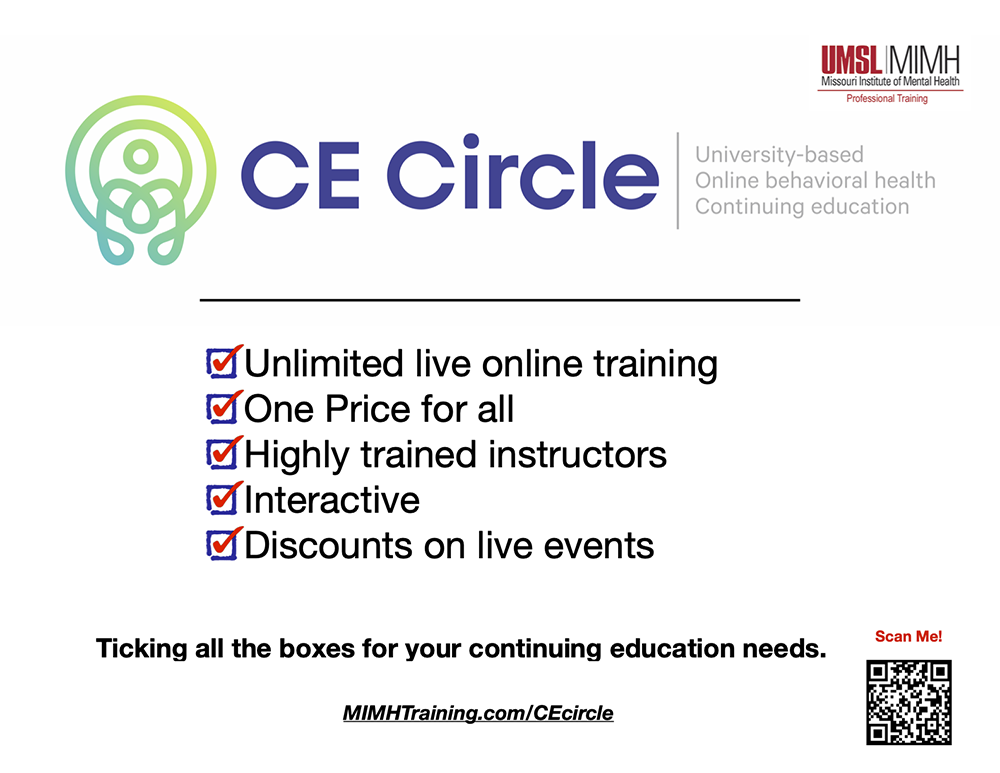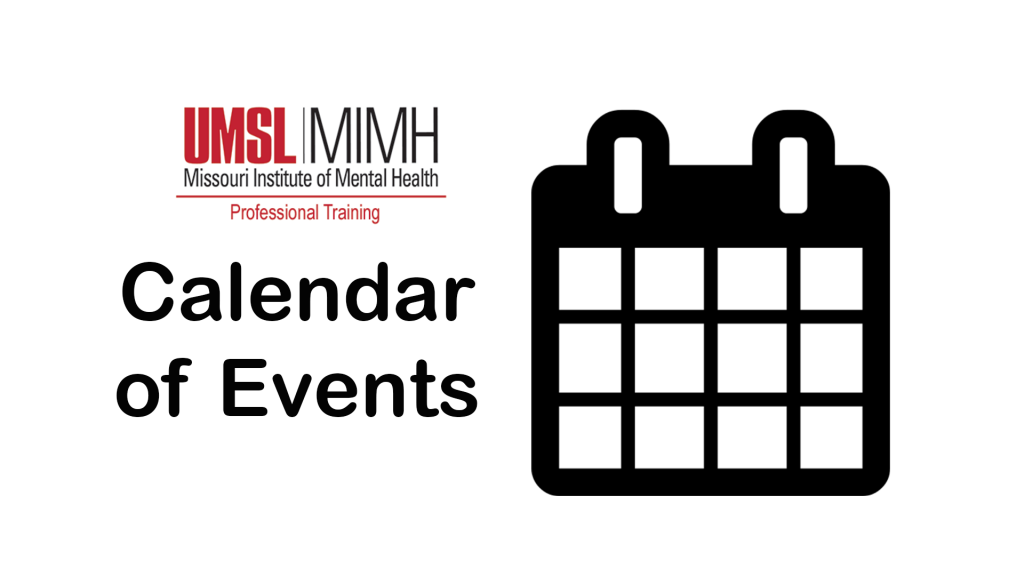Diagnostic Trends: DSM-5, the Strengths Perspective, & ICD-10
Register Now
Leon R. Probasco, MSW, LCSW, LSCSW, BCD, SAP-DOT
program number: 16004
[tab:Overview]
Dates and Locations:
| Register for St. Louis, MO | Register for Jefferson City, MO | |
|---|---|---|
| Friday, February 19, 2016 | Friday, February 26, 2016 | |
| Afternoon Session 12:30 pm to 4:00 pm |
Afternoon Session 12:30 pm to 4:00 pm |
|
| MIMH 4633 World Parkway Circle St. Louis, MO 63134 |
Missouri Coalition for Community Behavioral Healthcare 221 Metro Drive Jefferson City, MO 65109 |
Registration Fee:
$99
This presentation focuses on diagnostic trends related to changes from the Diagnostic Statistical Manual (DSM-IV) to the DSM-5, and how to integrate the DSM-5 with the Strengths Perspective. Attendees will learn about the reasons for the DSM-5 revisions, the process of reaching agreement on changes from a categorical system to a more dimensional system, & the World Health Organization’s International Classification of Diseases (ICD-10). Attendees will become familiar with the cultural formulation section of the DSM-5, the importance of understanding cultural diversity, and how to talk with service participants about ethnicity differences.
Participants learn about psychiatric diagnoses, & major affective, cognitive, trauma, and alcohol & substance disorders which behavioral health providers encounter. Attendees are challenged to integrate the psychopathologic perspective with the Strengths Perspective, and learn how to generate accurate diagnoses, while considering the service participant’s uniqueness, social context, and socioeconomic status. The limitations & controversies about use of the DSM-5 will be supplemented by the Strengths Perspective, & research-informed practice.
The presentation includes review of the consolidation of autistic disorder, Asperger’s disorder, and pervasive developmental disorder into autism spectrum disorder, the streamlined classification of bipolar & depressive disorders, restructured substance use disorders, new diagnostic disorders, & conditions for further study, e.g. ‘Internet Gaming Disorder.’
Attendees will learn about the APA Emerging Measures, such as the Person-Centered Integrative Diagnosis (PID) model, Cross-Cutting Symptom Measures, World Health Organization Disability Assessment Schedule (WHODAS 2.0), & how to use in assessment. Participants will learn about the transition from DSM-5 codes to ICD-10 codes.
The presentation includes discussion of the groups with vested interests in the DSM-5, including the American Psychiatric Association (APA), insurance companies, hospitals, pharmaceutical companies, mental & behavioral health professionals, & service participants in treatment. This presentation will be of substantial & practical value to professionals associated with behavioral health, including social workers, psychologists, nurses, counselors, psychiatrists, physicians, & other health professionals.
Learning Objectives:
- Learn about highlights of changes from the DSM-IV-TR to the DSM-5.
- Understand the purpose of DSM-5 changes.
- Learn how to integrate DSM-5 with the Strengths Perspective.
- Become familiar with the cultural formulation section of DSM-5.
- Learn about the APA Emerging Measures & how to use in assessment.
- Understand the transition from DSM-5 codes to ICD-10 codes.
[tab:Presenter]
Leon R. Probasco, MSW, LCSW, LSCSW, BCD, SAP-DOT
Leon R. Probasco, MSW, LCSW, LSCSW, BCD, SAP-DOT, is Assistant Professor in the Masters in Social Work (MSW) Behavioral Health Program at Park University in Parkville (Kansas City), Missouri, where he teaches Diagnostic Trends: Integrating the DSM-5 with the Strengths
Perspective, Advanced Practice, and Advanced Field Education. Professor Probasco is a very experienced Behavioral Health practitioner with over 30 years of practice, including numerous psychiatric hospitals, addictions treatment centers, outpatient clinics, private practice, EAP programs, & substance abuse professional evaluations for the Department of Transportation.
Professor Probasco is a Board Certified psychiatric social worker & talented psychotherapist, skilled in a wide variety of psychotherapies. His presentation style is dynamic, professional, serious, warm, and/or light-hearted, combined to match the different learning styles of participants.
[tab:CEU]
Missouri Institute of Mental Health
The University of Missouri, Missouri Institute of Mental Health will be responsible for this program and maintain a record of your continuing education credits earned.
The Missouri Institute of Mental Health will award 3.2 clock hours or 3.9 contact hours (.4 CEUs) for this activity.
Missouri Credentialing Board
The Missouri Credentialing Board has approved this training for 3.5 hours.
National Board for Certified Counselors
MIMH is an NBCC – Approved Continuing Education Provider (ACEPTM) No. 6339 and may offer NBCC – approved clock hours for events (or programs) that meet NBCC requirements. MIMH is solely responsible for all aspects for the program.
3.2 clock hours are offered for this program.
[tab:Schedule]
12:30-2:00 (90 minutes)
–Changes from DSM-IV to DSM-5 and the ICD-10
–Streamlined and consolidated DSM-5 Diagnoses
–Integrating the Strengths Perspective with the DSM-5
2:00-2:15 Break
2:15-4:00 (105 minutes)
–Understanding and Generating Diagnoses
–APA Emerging Measures and How to Use Them
–Understanding the DSM-5 Stakeholders
–Discussion
[tab:Register]
Special Needs
If you have special needs, we ask that you notify us at 314.516.8419 or [email protected] as soon as possible. We will make reasonable efforts to accommodate your needs.
Refund Policy
If you are unable to attend, we ask that you notify us as soon as possible. Cancelations received in writing five business days prior to the date of the program will be refunded, less a $25.00 processing fee. You may send a substitute, but we ask that you notify us in writing of this change. If you do not attend or send a substitute, you or your employer will be billed the full registration fee.
Registration
Register Now
[tab:Map]
St. Louis Location
Jefferson City Location
[tab:END]








